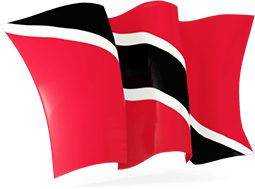
Code of Ethical Political Conduct

MEDIA RELEASE - JULY 25th, 2020
STATEMENT ON THE COUNCIL'S DELIBERATION
The Council for Responsible Political Behaviour met on Thursday July 23, 2020 and considered several complaints and concerns as submitted by members of the society. While all the complaints were deemed to be legitimate concerns, the question of whether the substance of a complaint can be deemed to be a violation of the Code is but a different issue. It is in this context that the Council, which is tasked with evaluating adherence to the Code, reports on the following complaints which were considered.
-
A complaint of Race-baiting and racism based on a statement “the ‘Black’ man on the other side.”
In assessing this complaint, the Council noted that the UNC leader who made the statement has insisted that the word she used was “Blank,” but on the other side several persons insist that the word they heard was “Black.” The Council will limit itself to treating with the substance of the complaint as to whether the statement, be it Black or Blank could be deemed to be race-baiting and racist.
There is great lack of clarity regarding whether 'blank' or 'black' was said, heard and intended in the speech by the UNC leader. We note that ‘black’ was not a theme of the larger speech content, and may have been an uncorrected mispronunciation, with inflammatory consequences. We also note that the UNC leader publicly refuted that either racialism or racism was intended in the speech. However, we are aware that public reception and perception have been much more complex. In terms of our multi- racial society, reference to a person being Black has multiple meanings, and can be used to express racial disdain or pride. It can also refer to persons of African descent or, more broadly, non-white persons. The Council concludes that the speech was not intended to be racist, though it had the effect of appearing to be race-baiting. In this context, the Council notes that perceptions of racial or racist language in campaigning can create public discord, and cautions all candidates to be sensitive to the potential for such language to be perceived to be part of campaigning, thus exacerbating racial tensions in the society; something which the Code expressly calls on parties to avoid.
-
Complaint that Social media is being used to promote character assassination, division, hate and discrimination.
The Council was presented with several videos and social media posts which can be deemed to be efforts at promoting character assassination, division, hate and discrimination. The Code specifically speaks to this being prohibited conduct in an election campaign:-
Not seek to assassinate the character of or make defamatory comments about any individual, family, professional group or section of the community.
-
Not engage, recruit, or deploy any individual(s) for the purpose of violence, intimidation or harassment
-
Not indulge in negative campaigning or advertising or any action which would bring the political process into disrepute.
-
Not criticize aspects of the private lives of Candidates, their families, not connected with the public activities of the leaders or Candidates of other Parties
The Council notes with concern that social media and the circulation of videos, even of past speeches, has been used and can be used in ways that can promote division, hate and discrimination against specific groups, including women and persons from the LBGTI communities. We call on all parties to campaign in ways that do not promote the greater vulnerability of women, and particular young women, to attacks on the basis of their gender and sexuality, noting that this greater vulnerability is one of the reasons for women's lower participation in politics, affecting their right to democratic participation.
-
-
Complaint that state funded events are being used to promote the candidacies of PNM candidates only
With the various ribbon cutting and sod turning events that are occurring, there is the concern that events which are state funded have included within the list of invitees PNM candidates, several of whom currently have no official positions in the government of Trinidad and Tobago. Moreover, in some instances some of these candidates are called upon to speak or to make presentations. This is a clear case of an abuse of state powers in the context of giving an unfair advantage to candidates for the PNM as opposed to other candidates. The Council thus calls on all state agencies and Departments to not allow the state’s institutions to become engrossed in naked politicking and oversee a level playing field for all candidates who have been formally nominated to contest the elections.
Respectfully submitted on behalf of the Council,
Dr. Bishnu Ragoonath, Chair
